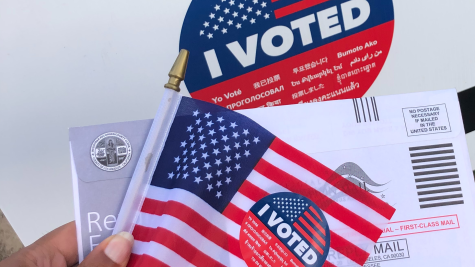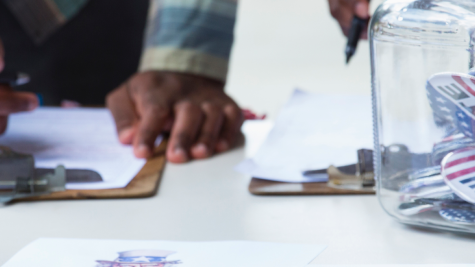Meet the Team: Zachary Djanogly Garai
Meet one of the Lab's newest members!
We're back with a new introduction for a new Election Lab team member! Zachary Garai is a newcomer to our research staff, and we're very excited to welcome him.
How long have you been at the Lab? What do you do?
I joined MEDSL this summer as the newest Senior Research Associate. At first, I’m working primarily on cleaning elections data for our Hidden Partisanship Project and operationalizing and constructing indicators for the Elections Performance Index. As the EPI is built out, I’ll be contributing more to our blog, which records shorter-form analyses of data, results, and other topics of interest in elections administration. I also look forward to contributing to special projects of the Lab’s and our research agenda.
What were you working on before you joined MEDSL?
Prior to joining the Lab, I graduated with a joint BA/MA in Political Science from the University of Chicago. In between little adventures throughout the Midwest, I split my time between the Center for Effective Government’s essential work promoting institutions that deliver for the people they purport to serve and my thesis, which delved into the causes and consequences of 2020 election denialism on the 2022 midterms and state election policies. Starting a new chapter here in Cambridge at MEDSL means bringing three key elements—quantitative analysis, theory development, and an overriding concern for institutional efficacy—together to provide researchers and practitioners alike the research they need to make America’s elections infrastructure work for everyone.
How did you become interested in elections?
Elections were always of interest to me. In middle school, I remember enjoying “reporting” on politics in Los Angeles for my school and local newspapers. It wasn’t until I had a Moot Court case in high school about election administration, though, that I first began to appreciate the complexities of election law and the inner workings of democracy, and especially after I began to volunteer at the ballot box.
What's your favorite fun fact?
Did you know that peaches and raspberries come from the same family as almonds (and roses)? Meanwhile, citrus fruits are technically berries.
What MEDSL project are you most excited about?
One of MEDSL’s most interesting new projects is a new research initiative on hidden partisanship. For a political moment characterized by intense, divisive, and consequential partisan polarization, I’m curious to see how voters weigh their options in ostensibly nonpartisan elections without party labels. Many of these contests, such as for state supreme courts (e.g. Wisconsin’s April 2023 election), seem to break down almost along partisan lines—even though voters can’t see which party certain candidates belong to! But why, where, and to what extent? We at MEDSL are working hard to find out!


